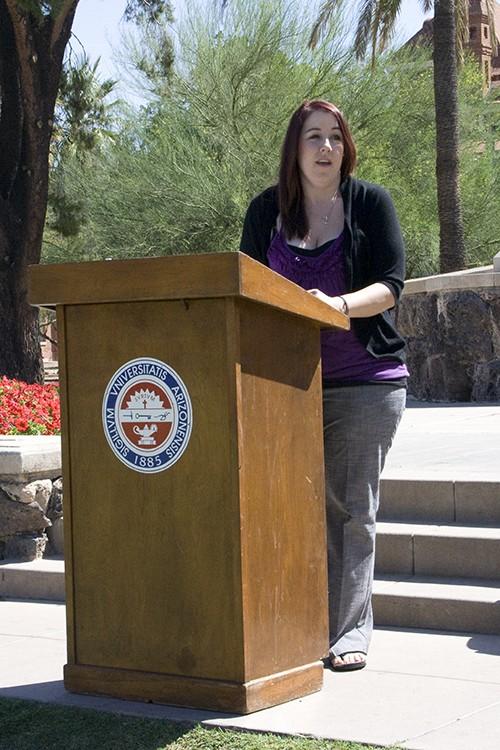A recent survey conducted by the Arizona Students’ Association revealed that students pay an average of $348 for textbooks per semester.
ASA released the results of the survey today, which polled 303 students from the university. Twenty-two percent of the students polled said they paid $500 or more for one semester’s worth of textbooks.
“”Every college student is familiar with the problem of going into the bookstore and paying hundreds, if not thousands, of dollars every semester to get the textbooks required for their classes,”” said Alisha Raccuia, a intern with ASA. “”We really wanted to just get an idea of where students were spending their money and what they were spending their money on.””
Students were asked how much they pay out of pocket for all college expenses not covered by scholarships, grants and other forms of aid. About one-fourth reported that more than 75 percent of their college expenses are out of pocket and 60 percent of students polled said they have decided against purchasing a textbook because it was too expensive.
According to an ASA press release, the government accounting office reported that college textbook prices have increased at twice the rate of inflation, and that the prices have followed close behind increases in tuition. The average textbook costs $52.36 new, according to the National Association of College Stores’ 2005 College Store Industry Financial Report.
Textbooks that include CD-ROMs, pass codes and e-books inflate the costs of books, the press release stated.
Katy Nail, an ASA intern and sophomore studying English and political science, said she has spent more than $1,000 on textbooks during her two years at the UA. She recently switched to an Amazon Kindle, which she said makes books more affordable for her but it is not always an option for every class. Only 2 percent of the students polled reported that using an e-reader, such as an Apple iPad or Kindle, is the best way to save money on books.
“”While I’ve used innovation methods to save money, not everyone is able to do this,”” Nail said. “”We would like to continue to work with the bookstore and the university to save students more money and make education more accessible and affordable.””









